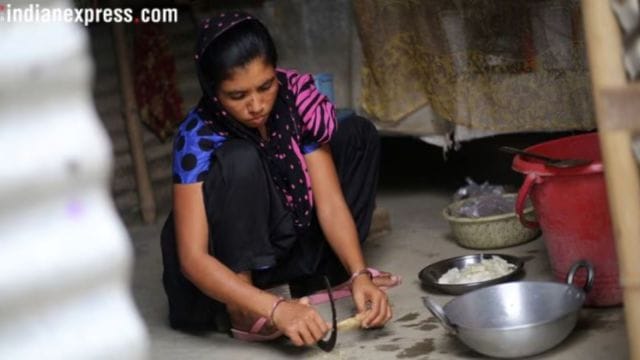All you need to know about Karnataka’s draft Bill on domestic workers, now open for public feedback
The draft Karnataka Domestic Workers (Social Security and Welfare) Bill 2025 aims to regulate domestic work and extend social security, welfare, and decent working conditions to domestic workers.
 The Bill will cover full-time, part-time, live-in, and casual domestic workers as well as gig or migrant workers employed in houses. (File Photo)
The Bill will cover full-time, part-time, live-in, and casual domestic workers as well as gig or migrant workers employed in houses. (File Photo)The Karnataka Government has published the draft Karnataka Domestic Workers (Social Security and Welfare) Bill 2025 for public feedback. The proposed legislation comes months after Karnataka became one of the few states in the country providing social security for gig workers.
What is the Bill about?
The draft Bill, notified on October 15, aims to regulate domestic work and extend social security, welfare, and decent working conditions to domestic workers. It extends to all areas covered under the metropolitan and municipal councils in Karnataka and applies to recruitment agencies and other service providers, including platforms based out of Karnataka, and others who provide domestic and other care workers within the state.
Citizens and stakeholders have 30 days to submit objections or suggestions before the Bill is finalised.
Whom will the Bill cover?
The Bill will cover full-time, part-time, live-in, and casual domestic workers as well as gig or migrant workers employed in houses. In the Bill, “employer” is defined as any household or individual engaging domestic workers, directly or through agencies or platforms. Similarly, “service providers” refers to placement agencies, cooperatives, companies, or digital platforms that recruit or supply domestic workers.
The law applies to domestic workers within Karnataka and excludes workers migrating out of the state.
What are the key provisions of the Bill?
Among the main provisions is that written contracts will be mandatory for anyone employing domestic workers. “No domestic worker shall be employed without an agreement in writing entered into between the employer and the worker,” says the Bill. The contract will have to specify wages, hours, benefits, and conditions of work.
A portal will be created by the Government for the registration of workers, employers, and service providers. Unregistered employment will be treated as illegal, as per the draft Bill. It also lists the rights of workers, such as minimum wages as per the provisions of the Minimum Wages Act 1948, a limit of 48-hour work week, with weekly holidays, amenities such as paid leave, maternity benefits, and rest periods, as well as access to training, grievance redressal, and social security schemes.
The Bill provides for the creation of a state welfare board and a welfare fund meant for domestic workers, through which they can secure benefits such as accident compensation, health coverage, maternity and paternity benefits, pensions, funeral assistance, and education support for children. It also provides for district-level committees to resolve disputes between workers, employers, and agencies, along with a sexual harassment complaints committee.
What are the key penal provisions of the Bill?
Non-registration or violations can attract imprisonment of up to seven years and fines to the tune of Rs 50,000 as per the Bill. Repeat offences carry stricter penalties.
After a 30-day consultation period ending next month, the Bill is likely to be taken up for discussion during the winter session of the legislature scheduled for December.







